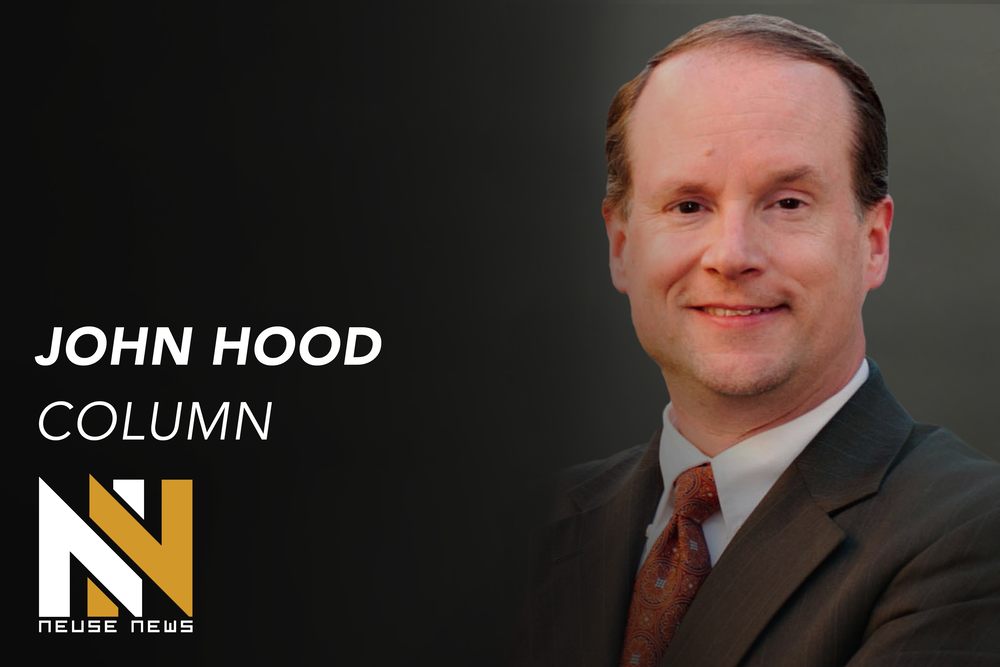RALEIGH — The 2024 election cycle will be one for the history books — be they about American politics generally or North Carolina specifically.
John Hood: Helene Shows Value of Fiscal Restraint
RALEIGH — The devastation wreaked on North Carolina by Hurricane Helene will take weeks to assess, months to clear out, and years to repair or rebuild. Second only to the value of the lives lost will be the exorbitant fiscal and economic costs of our recovery.
John Hood: Helene Brought Out the Best in Carolinians
As we mourn the deaths and grapple with the destruction inflicted on our state by Hurricane Helene, I submit that the storm has brought out much that is good about North Carolina — and much that is vile about social media.
John Hood - Let a Thousand Billboards Bloom
RALEIGH — Put me down as entirely unsurprised that media companies are adding commercials back into their streaming services as a means of making them profitable. Advertising has never been as unpopular as its critics imagine — a truth that North Carolina policymakers should embrace as they try to finance new infrastructure without irritating taxpayers.
John Hood: Licensing Laws Shackle Labor Markets
North Carolina is one of the toughest places in the country to enter a new career — and that doesn’t auger well for our future economic performance.
John Hood: Conservatives must stand for freedom
In North Carolina, the political label “conservative” is more popular than the terms “liberal” or “progressive.” In the most recent John Locke Foundation poll, for example, 46% of likely voters described themselves as conservatives, with 25% picking the liberal label and the rest either “moderate” or nothing at all. If we broaden out to include all North Carolinians, not just those who reliably vote, the gap shrinks a bit. But conservatives still form a plurality — and they significantly outnumber liberals.
John Hood: Spend Now, Reap Benefits Later
When the North Carolina House of Representatives approved its state budget plan a couple of weeks ago, the proposed pay raises for public employees, tax relief, and policy changes found within the budget bill commanded the lion’s share of public attention.
John Hood: Suburban Surge Drove GOP Success
North Carolina has long been a political battleground — but the shape of that battlefield has changed significantly over time.
John Hood: Few Institutions Inspire Public Trust
The three most-trusted social institutions in North Carolina are the military, the police, and small business. Make of that what you will. I made the following column.
John Hood: Sweat the details on teacher pay
The General Assembly ought to enact big pay increases for educators in North Carolina’s public schools. In the context of soaring prices, strong revenue collections, tight labor markets, and persistent vacancies in key teaching positions, it’s the right thing to do.
John Hood: Patriotism requires a common story
Is a picture really worth a thousand words? In very online debates among very online people, the exchange rate is even more skewed. Case in point: a recent Wall Street Journal illustration generated tens of thousands of words of argument, invective, and speculation.
John Hood: We’re sliding towards single payer
North Carolina is about to become the 40th state to expand its Medicaid program under the Affordable Care Act. The bill drew huge, bipartisan majorities of legislators.
John Hood: States Should Lead on Parental Rights
A few weeks ago, three members of the North Carolina Senate — Amy Scott Galey of Alamance County, Lisa Barnes of Nash County, and Michael Lee of New Hanover County — filed a state Parents’ Bill of Rights to ensure that local schools respect parental authority to direct the education, development, and medical treatment of their children.
John Hood: Labor Participation Is Falling Again
The U.S. Bureau of Labor Statistics just released its latest jobs report for North Carolina and the rest of the country. As usual, the report contained a mixture of good news and bad.
John Hood: Partisan Elections Are the Best Kind
When I returned home to North Carolina from the nation’s capital in 1989 and subsequently registered to vote, I opted not to join a political party.















